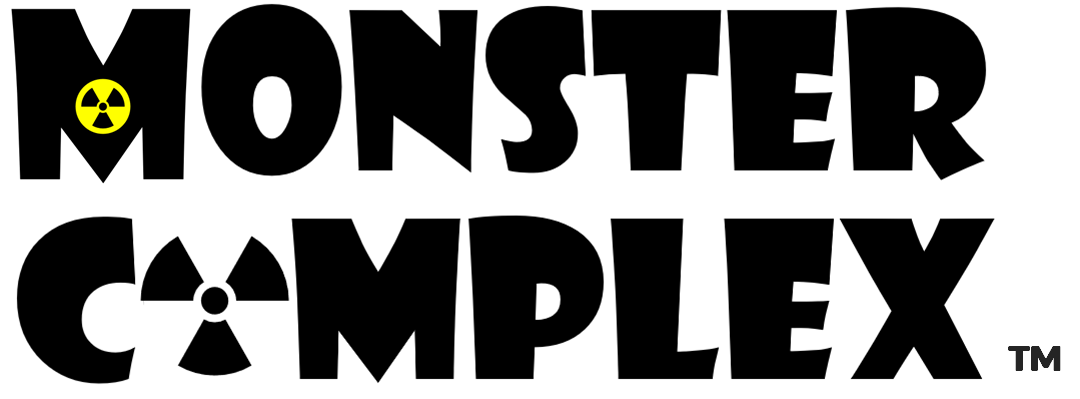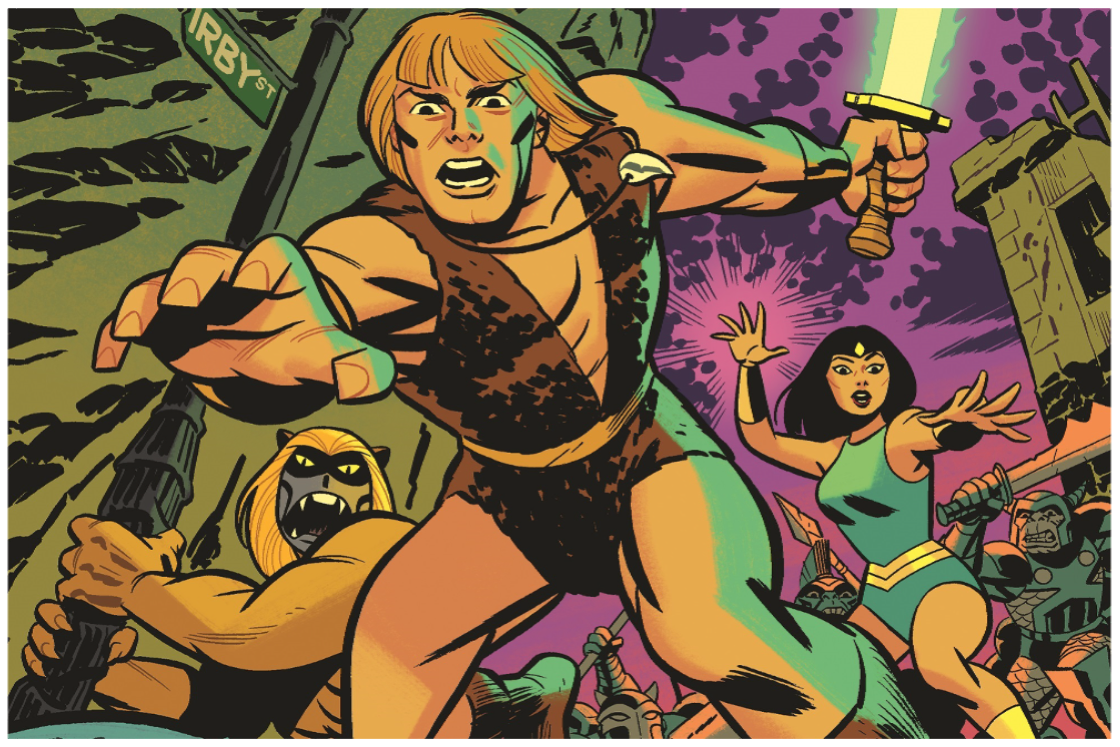Q&A: Luke McCamley on his fantasy horror novel ‘The Gods Who Want To Die’
As an Amazon associate I earn from qualifying purchases. (At no additional charge to you.)
Exploring the the blurry lines between witchcraft and religion…
“My style is to blend various true crime cases with supernatural themes and concepts… Combined with these ‘real life’ elements, I enjoyed marrying them with dark supernatural themes from the occult, black magic, witchcraft, classic horror films, and a sprinkling of David Lynch.”
Luke McCamley is an author and philosophy teacher with an unusual past. Although raised in the Mormon faith, he eventually left them behind. Pursuing his life-long dream of being an author—and with religion no longer holding him back—his new book The Gods Who Want To Die is a thriller blending horror, crime, occultism, and fantasy, exploring a mother’s struggle within a deadly cult.
McCamley talks to Monster Complex about his book The Gods Who Want To Die, including sharing how his background led to the book, explaining how the book combines real-life crime stories with supernatural and fantasy elements and stuff from horror movies, and revealing how writing the book served as a catharsis. The author also makes it clear he is not being anti-religious—but, rather, going against those who misuse or exploit religious activities.
About the book
The Gods Who Want To Die by Luke McCamley
A devoted mother is torn between love of family, and loyalty to a religious cult leader whose demands become increasingly bizarre—and deadly.
To all appearances, Shelly Grinstead is a happily married woman with three children. But appearances can be deceiving. There’s a dark past behind her, and a greater darkness looms ahead. Shelly is a firm believer in Necrotheism, a religious cult that helps immortal gods end their lives through the ceremonial mock-deaths of cult members. The only problem is, the latest deaths aren’t just ceremonial; they’re real. Someone is killing those who kill the gods, and no one knows who, or what, or how to stop it.
Shelly is also in love with cult leader Magnolia Blanchot, whose increasingly bizarre demands threaten to rip Shelly’s family apart. The police are just as bad in their own way, blackmailing Shelly’s son into playing bait for the killer. Whether that killer be god or man, Shelly’s not sure.
When tragedy strikes close to home, Shelly is forced to choose between loyalty and betrayal, faith and disbelief, life and death—before her tenuous grip on reality slips away….
Review: “This was a gritty, yet wonderful blend of dark psychological horror and fantasy. The harsh realities of cult life and the psychological trauma and mind games that occur for people lost in these groups were extensively explored in this novel, allowing the more fantastic and supernatural elements of the mythos of this world to feel grounded and engaging to readers.” (Author Anthony Avina’s Blog)
Find The Gods Who Want To Die on Amazon (affiliate link)
About the author
Luke McCamley has a background in teaching philosophy, religion, and ethics. He has written two novels and is currently working on a third. Major influences on his work are authors such as Chuck Palahniuk, Bret Easton Ellis, Alissa Nutting, Marisha Pessl, Iain Reid, Matthew Stokoe, and William Burroughs. His style typically blends elements of true crime stories with philosophical, moral, and supernatural themes including fantasy horror.
Formerly a member of the Church of Jesus Christ of Latter-day Saints, McCamley left the cult in 2014 and experienced a profound transformation in values and outlook. He has two children, and currently lives in the west midlands in the UK. On a personal level, McCamley subscribes to the philosophy of Absurdism, inspired by the writings of Albert Camus.
Q&A: Luke McCamley on his fantasy horror novel The Gods Who Want To Die
Q: My understanding is that The Gods Who Want To Die is both driven by real-life stuff but also has supernatural or fantasy elements to the book. How do you describe the book (and what kinds of readers is it for)?
Yes. My style is to blend various true crime cases with supernatural themes and concepts. In The Gods Who Want To Die, there are three true crime cases that influenced (“inspired” feels a bit insensitive) the narrative. Two of them were heartbreaking real life cases that heavily impacted me when I read about them, and the third, a quite well-known true crime case involving two young men in Arkansas in the 1980’s who were found dead on railroad tracks. The so-called “Boys on the Tracks” case.
I also drew heavily from various experiences, including my own, of individuals either leaving a high demand religious way of life or an all-controlling cult. My experience falls somewhere in between.
Finally, combined with these “real life” elements, I enjoyed marrying them with dark supernatural themes from the occult, black magic, witchcraft, classic horror films (Hellraiser was a big one) and a sprinkling of David Lynch (Twin Peaks, especially). Most of all, the book explores the blurry lines between witchcraft and religion.
The Gods Who Want To Die is definitely intended for adult readers. I won’t shy away from the fact that the content is quite explicit in places (I’ve probably pushed this element somewhat because of the satirical tone of the book). Primarily, I’m targeting readers who enjoy boundary-pushing literary fiction, who possibly have a prior interest in the occult, and then I hope to interest casual readers who enjoy a classic, twisty, layered, narrative-driven story.
Q: Before this interview you had mentioned that this book was inspired by real-life stuff in your background. You also have been a teacher in philosophy, religion and ethics. How much is the book anchored by your past experiences and how much have you found your imagination taking the story somewhere else?
This is a great question. On the cult theme, I’ve absorbed and integrated a lot of real-life anecdotal experiences and observations, some from my own life, but probably more so from the experiences of friends, former friends, family members, (and former family members), all of which have had some connection to the phenomena of being part of a cult, for want of a better term.
I was raised a Mormon and I’ll leave others to decide whether they classify Mormonism as a cult or a high-demand religion. However, the real-life experiences were only ever prompts for my ideas.
Everything in the book is entirely fictional, pushed to extreme for satirical effect. And as you put it in the terms of your question, the benchmark for allowing my imagination to build an original story.
Q: How much was writing this book a way to get stuff out of your system? Or how much of it was an alternate way to teach?
I think this is obviously true of all fiction books to a degree. There’s an element of catharsis going on either consciously or subconsciously on the part of the author. In The Gods Who Want To Die this is certainly true. I found aspects of my experience leaving Mormonism to be so absurd and enraging that I felt like I wanted to write a book where I could, in my own way, take a satirical shot at what I call the “cult-mindset.”
It’s important to understand that my novel isn’t attacking Mormonism, or any other particular religion or set of religious beliefs. It’s poking fun at a general kind of dogmatism that I think you can see almost everywhere you look these days, across a broad range of social, cultural, and political issues. There are so many examples today of individuals and groups promoting what I call the “cult-mindset” and it’s that rigidity of world-view, that kind of intolerance of different perspectives, that I’m attempting to satirise.
Q: What or who were your inspirations in terms of your writing style or approach to the genre? When and how did you become interested in writing your brand of stories?
My two biggest influences in pure writing terms would be Chuck Palahniuk and Bret Easton Ellis. I love fiction that is bold, brash, and disturbing, but also, thrifty, if I can use that word. What I love about Chuck and Bret is how they manage to cut through any extraneous narrative and get right to the point.
My single biggest influence in terms of the genre, subject matter, and brand of content I choose to write about has to be David Lynch. It’s not possible for me to quantify the impact that Twin Peaks has had on my writing. Lynch always inspires me to check my writing for formulaic or derivative ideas and shake it up with something fresh or even surreal.
Q: What are the best ways for fans to keep track of what you’re writing (and related author news about you)?
@mccamley999 on X (Twitter) and mccamleyluke on Instagram is where I post quite frequently.
More from Monster Complex
Stephen King on the return of HOLLY in his latest novel: “I could never let Holly Gibney go.”
D.M. Guay: The horror comedy author lets you visit 24/7 Demon Mart in a new 3-in-1 edition
13 Updates: Victor LaValle—author of Lone Women, The Changeling, and Destroyer
Complete RING series by Koji Suzuki: “I really dislike most horror writing.”

















The horror author talks about his brand-new short story collection, how his fiction represents him as an author, and his excitement working with the folks at Weird Tales.